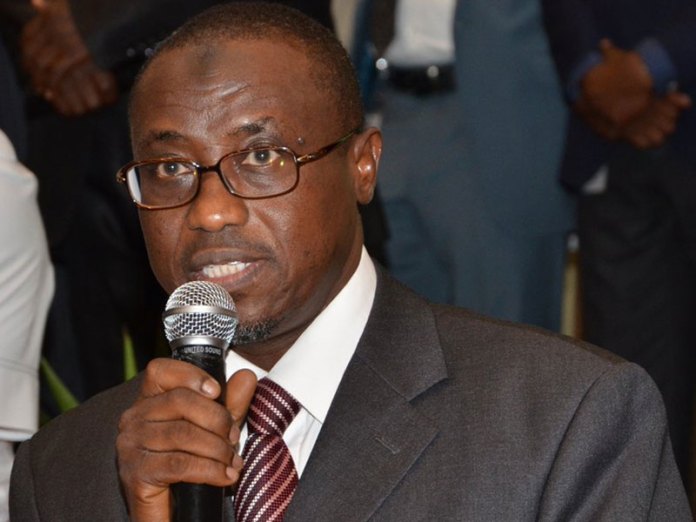- NNPC Close to Selecting Financiers for Refineries — Baru
The Nigerian National Petroleum Corporation is inching closer to choosing financiers for the Port Harcourt Refining Company Limited, Warri Refining and Petrochemical Company Limited and Kaduna Refining and Petrochemical Company Limited.
The corporation’s Group Managing Director, Maikanti Baru, said the development held the promise of boosting petroleum products supply and distribution across the country.
Baru stated this while briefing members of staff of the corporation on the fuel supply situation in the country during a town hall meeting in Abuja on Tuesday.
He said agreements on the potential financiers for the refineries were being fine-tuned, following which the endorsement of the NNPC Board would be sought this month.
Baru was quoted in a statement issued by the NNPC spokesperson, Ndu Ughamadu, as saying, “We are pushing towards the final selection of our financiers and we expect that when that is done, we’ll get the agreements and present them to our board meeting this month to secure its endorsement; and once we have the funding, we will start the rehabilitation of the refineries towards a 90 per cent capacity utilisation per stream day before the end of 2019.”
He described the procedure for electing the financiers as painstaking, noting that this was necessary to enable a desired closure on the subject.
Baru said the corporation was also encouraging new refining capacities to come on board, adding that there were two consortia that had indicated interest to co-locate refineries in Warri and Port Harcourt.
He stated that the NNPC would provide whatever utility services the companies might require, such as power, processed steam, water and land, stressing that the corporation had agreed in broad terms on areas of collaboration to fast-track the development.
“I am happy to inform you that progress has been made, up to the level of an acceptable detailed engineering design and we are in the process of mobilising some of the refineries already identified for installation in Nigeria,” the GMD said.
He said the Kaduna State Government was also championing a proposal to co-locate another refinery close to the KRPC with the intent of sourcing Nigerien crude for its operations.
Baru stated that other Greenfield refineries were to be brought on board soon in Kano and Kaduna, stressing that they would source their crude from Niger Republic.
He said the designs for the proposed refineries in Kano and Kaduna were ready and that the construction would commence this year.
The NNPC boss stated that the Ministry of Petroleum Resources and the corporation were collaborating to encourage the establishment of modular refineries in the Niger Delta to encourage job creation.
“So far, about 35 interests for modular refineries have been declared and the Department of Petroleum Resources has issued licences to about 13, and I have been invited to the ground-breaking of the first one in Bayelsa next month,” Baru said.
He noted that the Federal Government and the NNPC would continue to encourage private sector initiatives that would bring in competition into the petroleum products supply and distribution network so as to guarantee energy sufficiency for the country.
Baru hinted that the corporation was also exploring other sources of energy that could substitute Premium Motor Spirit, otherwise known as petrol, in cars and motorcycles, as the use of Compressed Natural Gas to power vehicles in Benin City was the right step in the right direction.
He said over 3,000 vehicles were now CNG-powered in the city, making them more secured and more efficient, given that gas is a cleaner source of energy.

 Naira4 weeks ago
Naira4 weeks ago


 Naira4 weeks ago
Naira4 weeks ago


 Naira3 weeks ago
Naira3 weeks ago


 News4 weeks ago
News4 weeks ago
 Travel4 weeks ago
Travel4 weeks ago




 Naira3 weeks ago
Naira3 weeks ago


 Jobs3 weeks ago
Jobs3 weeks ago
 Naira3 weeks ago
Naira3 weeks ago






















